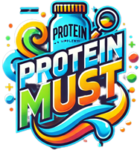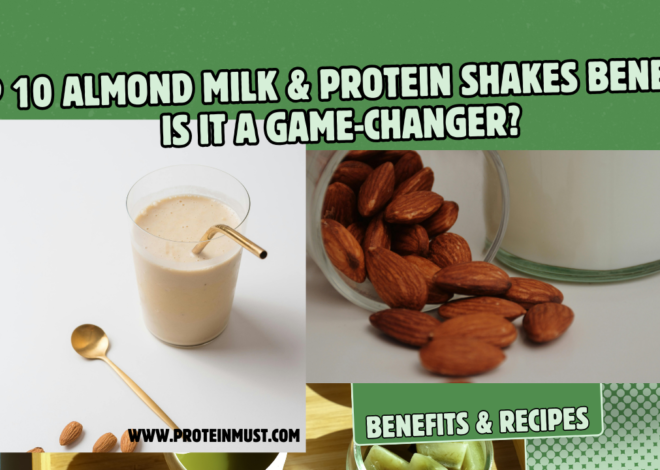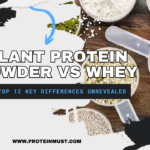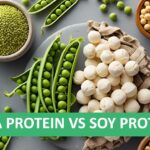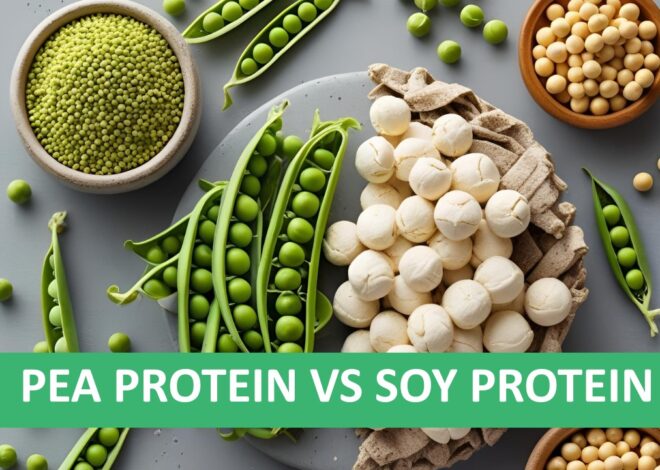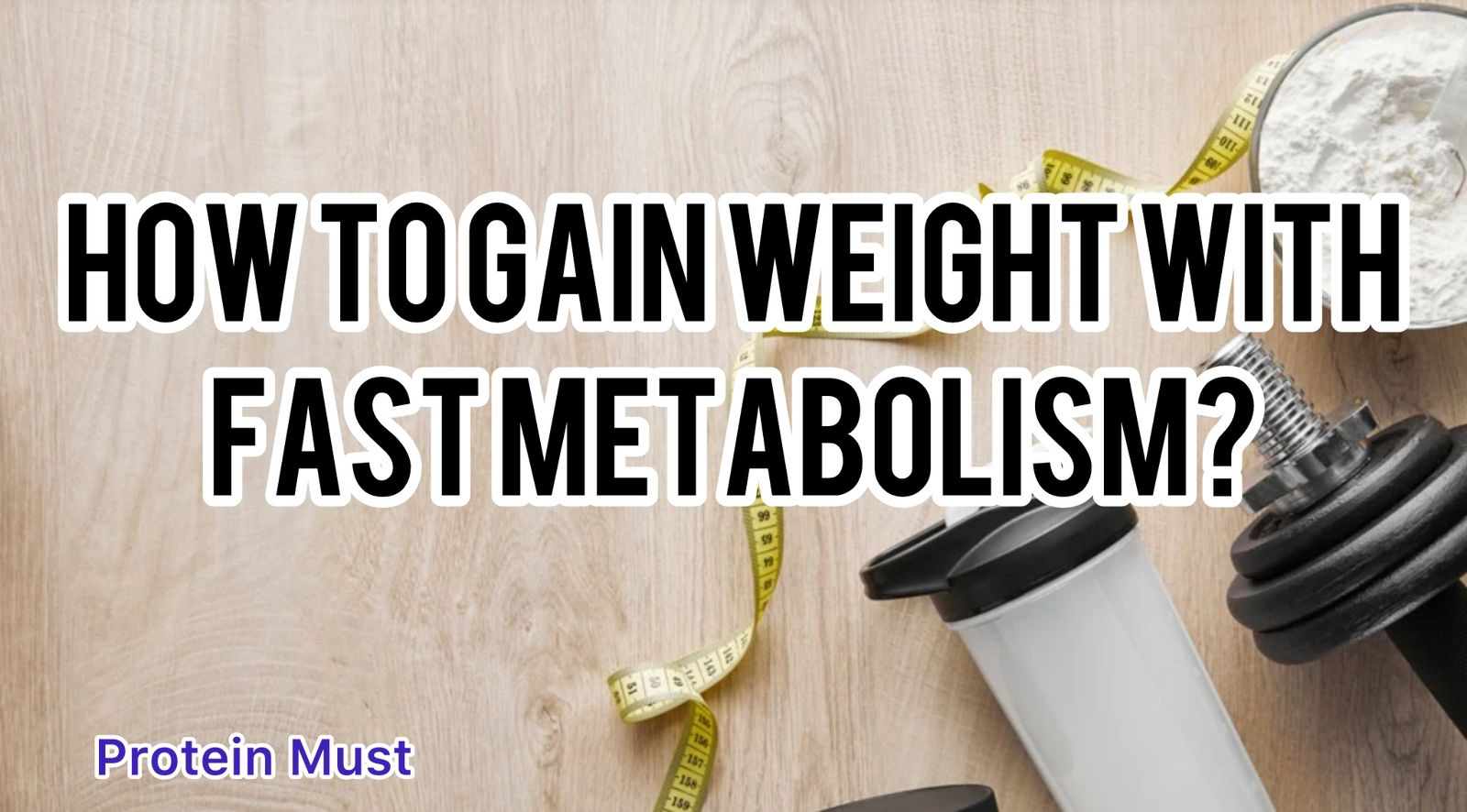
Unlock the Secret to Gaining Weight With a Fast Metabolism
If you’re struggling to gain weight despite having a fast metabolism, you’re not alone. People with this type of metabolism tend to burn calories faster, making it harder to keep the weight gain process steady. To overcome this, it’s essential to focus on consuming more nutrient-dense foods and calorie-dense meals. These meals help you to Gain Weight With Fast Metabolism and maintain a healthy balance between protein, carbohydrates, and healthy fats, supporting your body’s energy needs and muscle mass growth.
Master Fast Metabolism Hacks
While it may seem tempting to indulge in junk food or processed meals, it’s important to remember that these won’t help you gain muscle or stay healthy in the long run. Instead, focus on getting enough sleep and reducing stress, as they play a big role in your metabolism and overall health condition to Gain Weight With Fast Metabolism . Proper nutrition, combined with a diligent workout routine, will make a huge difference in reaching your weight gain goals.
How to gain weight with fast metabolism?
Gaining weight with a fast metabolism requires a strategic approach. Focus on consuming nutrient-dense, calorie-rich foods like nuts, avocados, and whole grains. Add an extra 300–500 calories to your daily intake by incorporating snacks, shakes, or supplements. Strength training is essential to build lean muscle mass and ensure the extra calories contribute to muscle rather than fat. Stay consistent and track your progress to adjust your intake as needed to Gain Weight With Fast Metabolism . If weight gain remains a challenge, consult a dietitian or healthcare provider to identify potential barriers like underlying health conditions and to tailor an effective plan to your needs.
How to know if you’re underweight?
Body Mass Index (BMI) is a commonly used tool for health screening, helping to estimate the amount of body fat based on height and weight. According to the Centers for Disease Control and Prevention (CDC), you’re considered underweight if your BMI falls below 18.5. The standard BMI chart divides weight status into categories: underweight, normal weight, overweight, and obese. It’s important to understand that while BMI provides useful information, it doesn’t account for other health factors like muscle mass or fat distribution. Even if your BMI classifies you as underweight, this doesn’t necessarily indicate poor health.
| BMI | Weight Status |
| 18.5 or below | Underweight |
| 18.5–24.9 | Normal |
| 25.0–29.9 | Overweight |
| 30.0 or above | Obese |

However, if you are underweight and struggling to gain weight, reaching out to your doctor for guidance is a smart move. Your metabolism could be playing a role, as it affects how your body processes calories. Understanding how to manage metabolism could help address issues related to weight gain or loss.
What is Metabolism?
Metabolism is a series of chemical reactions in your cells that turn the food you eat into energy. These reactions are crucial for your body to function properly. There are two key processes involved in metabolism: Catabolism and Anabolism. Catabolism breaks down nutrients like carbohydrates, fats, and proteins to release energy, while Anabolism uses that energy to build and repair body tissues and support growth.
Your Basal Metabolic Rate (BMR) is the rate at which your metabolism works, even when you’re at rest. Several factors influence your BMR, such as age, gender, genetics, and muscle mass. Understanding how metabolism works can help you manage your weight and energy levels better.
Metabolic Rate
Metabolic rate refers to the total energy expended through metabolic processes. This rate is often measured using the resting metabolic rate (RMR) or basal metabolic rate (BMR), which estimates the calories your body burns per day just to exist. Essentially, BMR indicates how many calories your body would burn if you were lying in bed all day, doing nothing
Differences Between Females and Males in Metabolism
Males and females have different metabolic rates. Generally, men have a higher metabolic rate than women, due to differences in fat storage and hormones. Females tend to store body fat between their muscles and skin in the lower body, while males store fat in their abdomens.
Additionally, women generally have less skeletal mass and more adipose tissue (body fat) than men. When it comes to exercise or increased activity, females tend to use fats as an energy source, while males rely more on carbohydrates for fuel.
The Link Between Metabolism and Weight Gain
Metabolism is the process in the body where food is converted into energy. The basal metabolic rate (BMR) explains how many calories your body burns when at rest. This is the amount of calories your body needs to function properly. Many people associate metabolism with weight loss, but it can also influence weight gain.Those with a slower metabolism may need fewer calories to function, which is why they tend to gain weight more easily. When the body burns calories at a slower rate, excess calories are stored as fat. It’s important for individuals with a slower metabolism to be mindful of the energy they consume daily.
Why do you need to slow down your Metabolism?
Sometimes, slowing down metabolism might seem odd because many people aim to boost it for weight loss and increased energy. However, there are situations where slowing metabolism can actually be beneficial.
Gain weight :
For example, those trying to gain weight may struggle if they have a high metabolism. It can be tough for them to maintain a healthy weight because they can’t consume enough calories. Slowing down metabolism in these cases helps them maintain their weight.
Medical conditions:
In some medical conditions, like hyperthyroidism, individuals have a fast metabolism. In such situations, slowing metabolism is a part of the treatment plan to help alleviate symptoms and improve overall health.
Conserve Energy
Additionally, athletes engaging in ultra-endurance sports like long-distance hiking benefit from a slower metabolism. This helps them conserve energy and maintain endurance during long physical efforts.
How to Gain Weight With a High Metabolism?
Slowing down metabolism might seem counterintuitive in a society that often stresses the importance of accelerating it for effective weight management and increased vitality. However, there are times when deliberately downshifting your metabolic rate can be both feasible and even a beneficial choice. Understanding when and how to slow metabolism can be an important aspect of health management, especially in certain circumstances.
Adjust Your Caloric Intake:
One way to slow down metabolism is by adjusting your caloric intake. By consuming fewer calories daily, your body receives less fuel to burn for energy, effectively slowing down your metabolism. However, it’s important to reduce calories carefully, ideally under the guidance of a healthcare professional, to avoid issues like malnutrition.
Limit high-intensity exercise
Another method is to limit high-intensity exercise. While exercise is crucial for overall health, high-intensity workouts tend to increase your metabolic rate as your body needs more energy to meet physical demands. Opting for lower-impact activities like yoga or walking can help slow down your metabolism to Gain Weight With Fast Metabolism.
Ensure rest and recovery.
Lastly, ensure you get adequate rest and recovery. Aim for 7-9 hours of sleep each night to allow your body to reset and recuperate, potentially lowering your metabolic rate.
Manage Stress
To slow down metabolism, it’s essential to manage stress. Chronic stress can trigger your body’s fight or flight mode, which increases metabolism and energy usage. To counter this, incorporate stress-reduction techniques like meditation, deep breathing, or mindfulness practices to calm your metabolic responses.
Balancing hormones
Balancing hormones is another way to regulate metabolism. In some medical conditions, hormone imbalances can lead to a fast metabolism. In such cases, medications or hormone therapies may be prescribed under the supervision of a healthcare provider to slow it down.
Increase healthy fats
Additionally, including healthy fats in your diet, like avocados, nuts, seeds, and olive oil, provides a caloric surplus that can help reduce your metabolism by supplying necessary nutrients.
Consume Complex Carbohydrates
One way to slow down metabolism is to consume complex carbohydrates. Foods like whole grains, legumes, and starchy vegetables provide sustained energy without causing rapid spikes in metabolism. Unlike simple sugars, which cause energy spikes and crashes, complex carbs help maintain a steady metabolic pace.
Mindful Eating
Another method is mindful eating. Paying attention to your eating habits and eating slowly can help regulate metabolism. Slow, careful eating supports digestion and can prevent overeating, which might accidentally speed up metabolism due to a sudden influx of calories.

Eat More Often
If larger meals are difficult to stomach, consider eating smaller meals and snacks throughout the day. Eating at set times daily ensures you remember to eat, even when your hunger cues aren’t activated. Additionally, focus on protein-rich foods like beans, cottage cheese, edamame, eggs, fish, Greek yogurt, lentils, meat, milk, nuts, seeds, shellfish, soy milk, soy nuts, tempeh, and tofu. These options provide the protein your body needs to build muscle while increasing your calorie intake.
Eat More Carbs and Fats
Along with fats, carbs and protein are important macronutrients for weight gain, but fats provide more calories per gram than carbs and protein. This makes unsaturated fats a great option to help meet your calorie goals. Start with calorie-dense options like meat and sliced avocado, then move on to complex carbs like raw vegetables. Additionally, opt for energy-dense foods that provide essential nutrients like dried fruits, nuts, full-fat dairy, whole grains, fats and oils, fattier meats, sweet potatoes, and peanut butter to maximize calorie intake without relying on unhealthy processed foods.
Focus on Making Meals More Enjoyable
A common challenge for those trying to gain weight is that eating can feel like a chore. To help you reach your bodyweight goals, it’s essential to make meals both fun and delicious. Fortunately, many of the tastiest ingredients are also the most calorie-dense. Ingredients like sauces, dips, herbs, and spices can boost both the flavor and nutritional value of your meals. Add nutritional yeast, cheese, and seasoning salt to your baked broccoli, or sprinkle cinnamon and hemp hearts on your peanut butter toast to make your meals more enjoyable and help you gain muscle mass.
Use condiments
Additionally, use condiments high in fat to add extra calories to meals like sandwiches, wraps, or salads or other delicious condiments of your choice.
Avoid Excess water Intake
Lastly, avoid drinking too much water before meals, as it can fill you up and make it harder to eat the necessary calories.
Use bigger plates
To help gain weight, consider these extra tips. First, use bigger plates to encourage consuming more calories, as smaller plates can make people eat less. Second, try creatine supplements like creatine monohydrate, which are known for helping with muscle weight gain.
Quality sleep
Getting quality sleep is also crucial for muscle growth, so ensure you maintain good sleep hygiene.
Quitting smoking
Lastly, if you smoke, consider quitting, as smokers tend to weigh less than non-smokers. Quitting smoking can often lead to weight gain over time.
What type of meals to eat to Gain Weight?
Increasing Protein Intake
Eating more protein is crucial for growth, development, and overall health. A study in 2020 found that increasing protein can help boost lean muscle mass. The Food and Drug Administration (FDA) recommends that adults consume 50 grams of protein daily, although this may vary depending on factors like age, sex, and medical history. High protein foods include meats, fish, eggs, dairy products, legumes, and nuts. If you have trouble getting enough protein, protein supplements like whey protein can be a helpful addition. However, protein may reduce hunger and appetite, making it more difficult to consume enough calories.

Increasing Carbohydrate Intake
Increasing your intake of carbs can be an effective way to consume more calories for weight gain, although carbs alone won’t directly cause weight increase. Healthy carbs like oats, quinoa, fruits such as oranges, bananas, and blueberries, sweet potato, and buckwheat are excellent options. Carbs are an important part of a balanced diet.The amount of carbs you should aim to eat depends on factors like age, sex, and overall health. Experts generally recommend that 45% to 65% of your daily calories come from carbs. Keep in mind that calorie calculators provide only estimates, and your actual needs may vary by several hundred calories per day.
Eating More Energy-Dense Foods
To gain weight, it’s important to include more energy-dense foods in your diet. These foods provide many calories relative to their weight, helping you consume more without feeling overly full. Using plenty of spices, sauces, and condiments can make your meals tastier, making it easier to eat more. . Some examples of energy-dense foods that can help you gain weight include nuts like almonds, walnuts, macadamia nuts, and peanuts; dried fruit like raisins, dates, and prunes; high-fat dairy like whole milk, full-fat yogurt, cheese, and cream; fats and oils like extra virgin olive oil and avocado oil; grains like oats and brown rice; meat such as chicken, beef, pork, and lamb, particularly fattier cuts; tubers like potatoes, sweet potatoes, and yams; and other energy-dense foods like dark chocolate, peanut butter, coconut milk, granola, and trail mix.
Protein shakes or meal replacement shakes
If you’re still struggling to meet your daily calorie goals, try protein shakes or meal replacement shakes, which are specifically designed to increase calories and build body mass.

15 Best Food with Guaranteed Results for Weight Gain
1.Homemade Protein Smoothies for Weight Gain
Homemade protein smoothies are a nutritious and effective way to gain weight. By making your own smoothies, you have control over the ingredients, which helps boost calories. For added nutrients and calories, you can combine each smoothie with 2 cups (470 mL) of dairy milk or soy milk if you’re lactose intolerant. These milk options offer more nutrients than other milk alternatives.
2.Dairy milk
Dairy milk is a great weight gainer and muscle builder due to its balance of proteins, carbs, and fats. It’s also a good source of calcium, vitamins, and minerals. Both casein and whey proteins found in milk are ideal for building muscle, especially when combined with weightlifting.
3.Rice
Rice is another excellent option for weight gain, being a calorie-dense carb source. Rice is easy to add to meals with ingredients like butter, Parmesan cheese, or scrambled eggs.
4.Nuts and nut butter
Nuts and nut butter are high in calories and perfect for snacking. For example, almonds provide protein and fats, making them a great snack for adding extra calories.
5.Red meats
Red meats, such as beef or pork, are highly effective for muscle building because they are rich in leucine, an amino acid essential for muscle growth. They also contain dietary creatine, which supports overall muscle growth and strength. However, it’s important to consume red meats in moderation due to potential links to colorectal cancer.
6.Salmon and oily fish
Salmon and oily fish, such as wild Atlantic salmon, are packed with protein and omega-3 fatty acids, making them excellent for weight gain and muscle building. You can enjoy salmon in various ways like smoked, grilled, or poached. It’s rich in fats and protein, which are essential for building muscle and promoting weight gain. Canned salmon is a convenient and affordable option for meals like tuna salad or a Cobb salad, helping you increase your calorie intake.
7.Dried fruit
Dried fruit is another high-calorie, nutrient-dense food, full of fiber and antioxidants. You can pair it with nuts and Greek yogurt to create a calorie-rich snack.
8.Avocados
Foods like whole grain bread, avocados, and dates are also great for adding healthy fats and calories to your diet. From guacamole to avocado toast, these ingredients provide a versatile and tasty way to increase your caloric intake while maintaining a nutritious balance. is another high-calorie, nutrient-dense food, full of fiber and antioxidants.
9.Cereals
Cereals like oatmeal, granola, and muesli are excellent sources of carbs, calories, and essential nutrients for weight gain. Adding whole milk and toppings such as nuts, nut butter, dried fruit, chia seeds, and flaxseed can boost calories significantly.
10.Cheese
Finally, cheese, such as cheddar, is a delicious way to add both calories and protein. You can use it in dishes like macaroni and cheese, adding extra protein and calories by mixing in broccoli, peas, or even bacon.
11.Whole eggs
Whole eggs are an excellent source of proteins and fats, making them ideal for muscle-building. Most of the nutrients in eggs are found in the yolk, so it’s important to eat the whole egg. You can enjoy eggs cooked in different ways such as boiling, frying, scrambling, or baking. They are versatile and can be added to dishes like salads, casseroles, and sandwiches.
12.Greek yogurt and whole milk
Greek yogurt made with whole milk is another great source of high-quality protein.

13.Toppings:
It’s calorie-dense and can be eaten as a snack or added to recipes like smoothies, parfaits, or yogurt and fruit. Toppings like nuts, granola, honey, and dark chocolate will boost both flavor and calories.
14.Fats and Oils
Additionally, fats and oils, such as olive oil, avocado oil, and coconut oil, are calorie-dense and can be used to increase your calorie intake. Adding just one tablespoon of olive oil to dishes like sauces or salads can contribute significant calories. For a unique, high-calorie option, try butter coffee or olive oil coffee for breakfast or as a snack
15. Cereal Bars:
Cereal bars are a portable, calorie-dense snack that combines both slow- and fast-digesting carbs. Pair them with protein sources like whole milk Greek yogurt or protein shakes for a more balanced snack. Another great option is dark chocolate, which is rich in antioxidants and has a high calorie density.
Monitoring Your Weight-Gain Progress
Using progress-tracking methods will give you insights into how your dietary and exercise strategies are working. These insights will help you adjust your approach in a timely manner if things aren’t going in the right direction.
Calculate your weekly body weight averages:
To track weight-gain progress effectively, you can follow these helpful tips. First, weigh yourself daily and calculate your weekly body weight averages. This method helps smooth out daily weight fluctuations caused by factors like fluid retention and gives you a more accurate picture of your overall progress.
Periodic Progress Photo
Second, take periodic progress photos under consistent conditions, such as the same time of day and lighting, to see physical changes in your body composition over time.
Anthropometric assessments
Another option is using anthropometric assessments like waist, hip, and arm circumferences to track body changes and distinguish between muscle gain and fat accumulation. Regularly assessing these metrics will guide you in adjusting your dietary strategies and exercise plans. If progress stalls, you may need to modify caloric intake, macronutrient distribution, or exercise intensity to continue making progress.
Gaining Weight Without Overeating
To gain weight, you need to consume extra calories, but it’s important not to overeat. You can ensure that the excess calories go to building muscle instead of accumulating in fat cells by starting a resistance training program. This type of training, which includes bodyweight exercises and free weights, promotes muscle hypertrophy, increasing muscle mass.
Additionally, combining protein supplementation with resistance training can help promote more gains in lean body mass than resistance exercise alone. One study showed that protein supplementation during 6 weeks of resistance training increased lean mass growth by 27% in healthy adults. If you’re new to training, consider hiring a personal trainer or taking a class to help you get started. Be sure to consult a doctor if you have any skeletal problems or medical issues that might make exercising difficult.
Role of Supplements in weight gain
Supplements can be a concentrated source of calories and nutrients, helping to support healthy and sustainable weight gain. While they should never replace whole, nutrient-rich foods, they serve as a valuable addition to your diet. As Laura Asbury, a registered dietitian and strength and conditioning coach, emphasizes, the right balance of calories and nutrients is crucial. For many, supplements can provide a boost of energy, making it easier to meet daily intake goals.The key is to use supplements as part of a structured plan, ensuring they align with your personal fitness journey and goals. With careful consideration, they can complement a healthy and sustainable weight gain strategy.
Types of Supplements to Support Weight Gain
Various supplements, like protein powders, mass gainers, creatine, and pre-workouts, can significantly aid in weight gain when paired with a balanced diet. Protein powders and mass gainers are among the best bets for increasing calorie intake, offering a convenient way to meet daily energy requirements. If your goal is to build muscle mass through strength training, consider creatine powders or pre-workouts. These options provide specific support for performance and recovery, making them ideal for fitness-focused routines.
Protein Powders
Protein powders are a convenient option for those struggling to meet daily protein needs through food alone. They are especially useful for boosting protein intake, though individuals with lactose intolerance or a milk allergy should avoid powders containing problematic ingredients. Some protein supplements may also include additives that can cause digestive distress. To build and maintain muscle mass, it’s crucial to pair protein intake with a calorie surplus and proper resistance training. For active adults, the recommended daily protein intake is 0.6–0.9 grams per pound (1.4–2.0 g per kilogram) of body weight, supporting muscle growth and maintenance. While protein supplements can complement a weight gain plan, whole food sources are essential.
Pros:
- A flexible option to enhance your diet
- Promotes muscle development and preservation
- Easy to carry and use while traveling or on-the-go
Cons:
- Won’t contribute to weight gain unless your total calorie intake exceeds your expenditure
- Low-calorie varieties might not supply sufficient energy for optimal benefit
- Could include additives that may lead to digestive issues for certain people
Mass Gainers
Mass gainers, often called weight gainers, are ideal for those unable to maintain a calorie surplus through food alone. These products, typically containing 300 or more calories per serving according to Asbury, are higher in calories, fat, and carbs compared to traditional protein powders, although some may include only carbohydrates. While their ingredients and nutrition content vary widely, certain additives like artificial sweeteners can cause digestive distress for some individuals.
Pros
- Easy-to-use, dense source of calories and essential macronutrients
- Commonly rich in protein
Cons
- Usually costly
- May have a less-than-pleasant flavor
- Ingredients and nutrient profiles can differ greatly
Creatine :
Creatine is widely used by those aiming to build muscle and improve athletic performance. It enhances exercise performance by increasing creatine concentration in muscles, leading to performance benefits and potential muscle gain over time. However, most creatine supplements are low in calories and should be paired with other ingredients to support weight gain. Creatine monohydrate is recognized as the most effective and common form of creatine. The typical loading dose is 20 g per day, split into 4 servings for 5–7 days, followed by a maintenance dose of 3–5 g daily. Some individuals may experience short-term weight gain due to changes in fluid balance or increased total body water.
Pros
- Scientifically proven to enhance exercise performance and aid recovery
- Can support muscle growth
- Simple to incorporate into a daily regimen
Cons
- Does not provide substantial calories required for weight gain
- Supports lean muscle gain indirectly rather than directly promoting weight gain
- High doses may cause digestive discomfort
Pre-Workouts
Pre-workouts are ideal for individuals aiming to enhance athletic performance while gaining weight. They can improve exercise capacity, allowing for longer, higher-intensity resistance training, which contributes to muscle mass gain. However, most pre-workout supplements contain little to no calories and should not be relied on to meet your calorie intake needs. As Asbury notes, a caloric surplus is essential for weight gain, meaning you must consume more calories than you burn. Common ingredients in pre-workouts, such as beta-alanine, caffeine, nitrates, creatine, and citrulline malate, can boost exercise performance, but they may also cause side effects.
Pros
- Can enhance exercise performance, potentially leading to lean muscle growth
- Convenient and simple to use
Cons
- Typically low in calorie content
- May contain ingredients that could cause unwanted side effects
How to choose a weight gain supplement?
Weight and Health Goals
Your weight and health goals determine the best supplement for you. For improving performance during workouts, pre-workouts or creatine supplements are ideal.
Calorie Intake
To increase calorie intake, opt for a high calorie protein powder or mass gainer, especially if you’re struggling to meet your needs through food. As Asbury suggests, effective weight gain supplements should provide at least 300 calories, 20 grams of protein, and 60 grams of carbohydrates per serving.
Current Diet
Consider your current diet when selecting a supplement. Products vary in calorie, fat, carb, and protein composition, and the best choice fills nutrient gaps while addressing your specific needs. Some supplements also include additional micronutrients and fiber, which are beneficial if your diet lacks these essential substances. Tailoring your supplement choice to your goals and dietary requirements ensures effective and sustainable results.
Dietary preferences:
When choosing weight gain supplements, consider your dietary preferences. Some products may contain common allergens or may not suit a vegan diet, so select one that aligns with your dietary needs.
Active ingredients
The active ingredients in a supplement, such as caffeine, creatine, and beta-alanine, can support your goals by enhancing performance during a workout, especially if your nutrition is already optimized.
Additives
Pay attention to additives, like artificial sweeteners, colors, preservatives, or thickeners, which some may wish to avoid. Reading supplement labels carefully ensures you choose a product that meets your needs and fits your preferences. Making informed decisions helps you find the right supplement for both your health and goals.
Added Sugar
Some protein powders and mass gainers may contain excess added sugar, which should be avoided if you already consume sugary foods throughout the day.
Third-Party Testing
Selecting a supplement that has undergone third-party testing by a reputable organization, like NSF International or Informed Sport, ensures that the contents match the label and meet safety standards.
Price:
Consider the price of weight gain supplements and those designed for exercise performance, as they vary widely. Use a reliable guide to make a decision that aligns with your budget while meeting your nutritional and fitness goals
Understanding Ineffective Supplements
While some supplements boost calorie or protein intake, aiding in muscle gain when paired with proper exercise programs like weight training, others lack strong evidence for effectiveness. Supplements that enhance exercise performance may provide a larger stimulus, encouraging the body to adapt, leading to weight gain or muscle gain over time. However, certain supplements show little ability to directly increase weight or muscle without being part of a structured program.
BCAAs
BCAAs are vital for muscle growth and found in nearly all protein sources. Anytime you consume a complete protein, you’re getting BCAAs. However, research suggests BCAA supplements are unnecessary if your protein intake is sufficient and they are too low in calories to support the calorie surplus needed for weight gain.
Testosterone boosters
Testosterone boosters, aimed at increasing the hormone responsible for anabolic processes and muscle growth, include ingredients like tribulus terrestris, fenugreek, D-aspartic acid, ashwagandha, and DHEA. While some studies suggest potential benefits, research remains inconclusive, and these products often fail to meet their marketing claims, especially in those without low testosterone levels.
Conjugated linoleic acid (CLA)
Conjugated linoleic acid (CLA), a fatty acid from animal products like dairy and meats, may influence body composition by reducing body fat and increasing lean muscle mass, though studies on CLA show mixed results. Many suggest its primary effect may be aiding weight loss, not necessarily weight or muscle gain.
When to Consult Your Doctor?
While weight gain goals for muscle mass, whether for aesthetic or performance reasons, generally don’t need medical intervention, consulting a doctor or trusted healthcare professional is always advisable before starting a new supplement regimen. If you’ve experienced unexplained weight loss or weight changes due to illness, speaking with a doctor can help identify the underlying cause and determine the next steps for effective weight gain.For those with a history of disordered eating, working with a health professional, such as a registered dietitian, is highly recommended.
Medical Reasons Why You May Not Be Able to Gain Weight
Genetics can influence your body type and may result in a naturally lean body type for some people. For others, certain medical conditions and medical treatments can cause weight loss or make it difficult to gain weight. Understanding these factors can help you address challenges related to weight gain.
Hyperthyroidism
Hyperthyroidism is an overactive thyroid that leads to an excess of thyroid hormone, which regulates metabolic rate. People with hyperthyroidism often have a faster metabolism and burn more calories throughout the day. Without proper medication, this condition can make it difficult to gain weight, even if food intake is increased.
Type 1 diabetes
Another condition that may cause weight loss is Type 1 diabetes, an autoimmune condition where the body destroys the cells in the pancreas that produce insulin. Insulin helps in the metabolism of glucose, and unmanaged Type 1 diabetes leads to high blood glucose, which is excreted in the urine.
Inflammatory bowel disease
Excess glucose excretion can lead to unintentional weight loss. Similarly, Inflammatory bowel disease (IBD), including Crohn’s disease and ulcerative colitis, can cause inflammation in the intestines, limiting food intake and causing frequent diarrhea, which can also result in weight loss.
Eating Disorders:
Eating disorders, such as anorexia nervosa and bulimia, can prevent individuals from maintaining a healthy weight. Anorexia nervosa leads to extreme weight loss and sometimes makes it impossible to gain weight. Bulimia can cause a person to struggle with keeping enough calories down, making it hard to maintain weight.
Medications and Treatments
Certain medications and treatments can also interfere with weight gain. Medications that cause appetite loss, nausea, vomiting, and diarrhea make it difficult for people to maintain a healthy weight. Antibiotics and chemotherapy are examples of treatments that often lead to gastrointestinal side effects, resulting in weight loss and difficulty gaining weight during treatment
Frequently Asked Questions (FAQs)
Are weight gain supplements safe?
Most weight gain supplements are generally safe when used as directed and as part of a balanced diet. However, potential risks may include side effects from additives, such as artificial sweeteners, or allergens in certain products. It’s essential to consult with a healthcare provider before starting any supplement regimen, especially if you have underlying health conditions.
Who shouldn’t use a weight gain supplement?
Individuals with certain medical conditions, such as diabetes, kidney issues, or food allergies, should avoid weight gain supplements without consulting a doctor. Additionally, those who can meet their calorie and nutrient needs through whole foods might not need supplements and could potentially overconsume calories or nutrients by using them.
Who should use a weight gain supplement?
Weight gain supplements can benefit people struggling to meet their calorie needs through food alone, such as those with a fast metabolism, busy schedules, or reduced appetites. Athletes and individuals aiming to build muscle mass or recover from illness-related weight loss may also find them helpful when combined with a balanced diet and exercise.
How long do weight gain supplements take to work?
The time it takes to see results from weight gain supplements depends on factors like your calorie intake, exercise routine, and metabolism. Typically, noticeable changes in weight or muscle mass can take several weeks to months of consistent use and proper dietary habits.
Do I need to exercise when taking weight gain supplements?
Exercise, particularly strength training, is highly recommended when taking weight gain supplements. It helps ensure that the additional calories are used to build lean muscle rather than contributing to fat gain, promoting a healthier and more sustainable approach to weight gain.
Is it Good to Have a Fast Metabolism?
Having a fast metabolism is neither inherently good nor bad. Metabolism is influenced by many factors, including age and genetics, which are often beyond our control. If you have a fast metabolism, it may be easier to stay lean and prevent unwanted weight gain
Conclusion:
A fast metabolism can make gaining weight challenging, but consuming an extra 300–500 nutrient-dense calories daily can help. If progress remains slow despite maintaining a calorie surplus, consult a healthcare provider to rule out conditions like hyperthyroidism. While the idea of hardgainers or ectomorphs being unable to gain weight due to genetic metabolism holds some truth, metabolic rates rarely prevent weight gain entirely when paired with strategic dietary modifications and appropriate physical activity. Progress might feel slow, but staying consistent with nutritionally-dense foods and a focus on lean muscle mass will lead to success over time. Remember, weight changes are a marathon, not a sprint. If challenges persist, working with a dietitian can provide tailored eating strategies to achieve your bigger goals.
